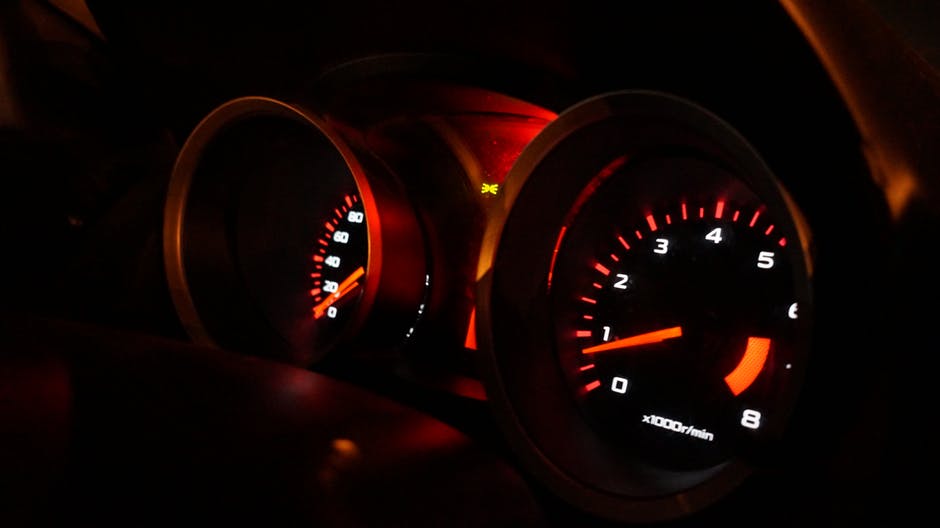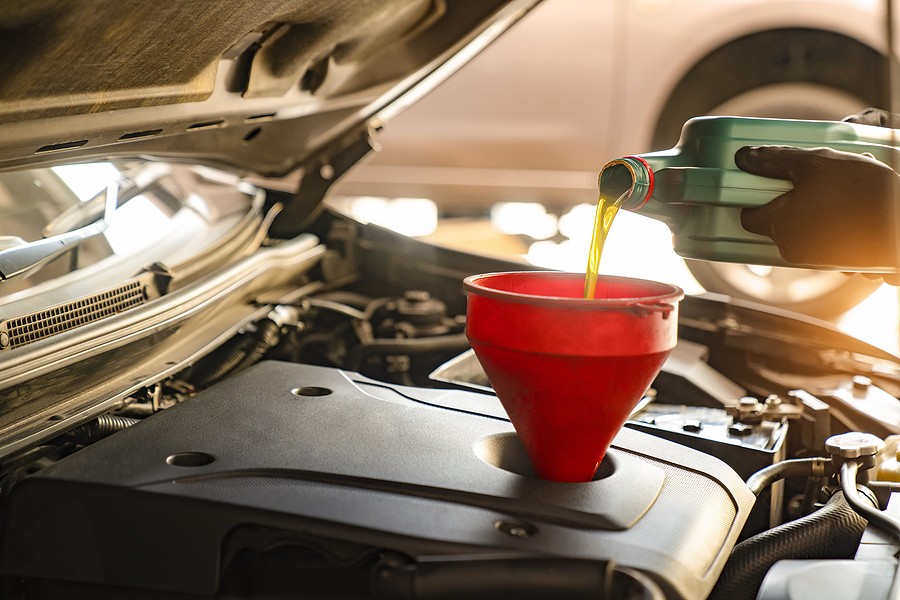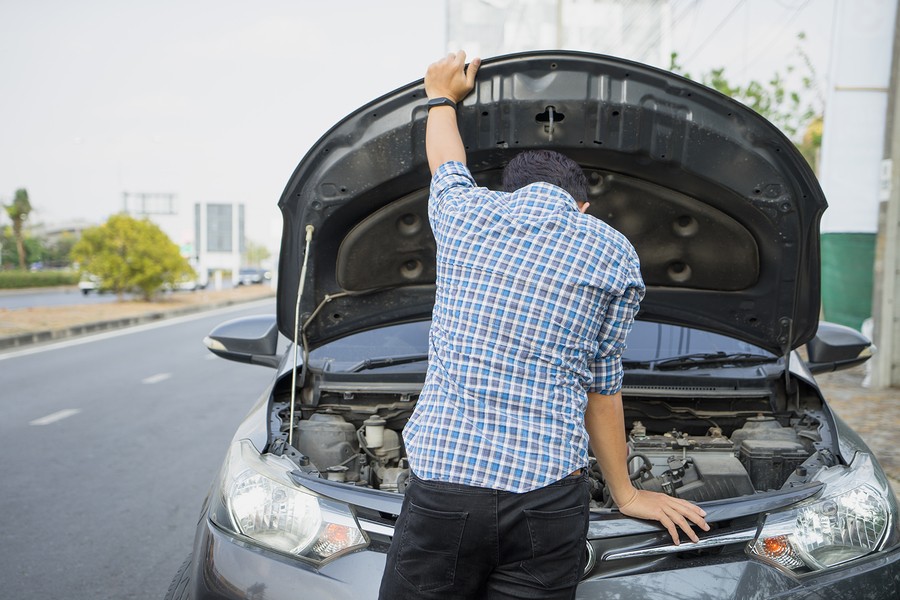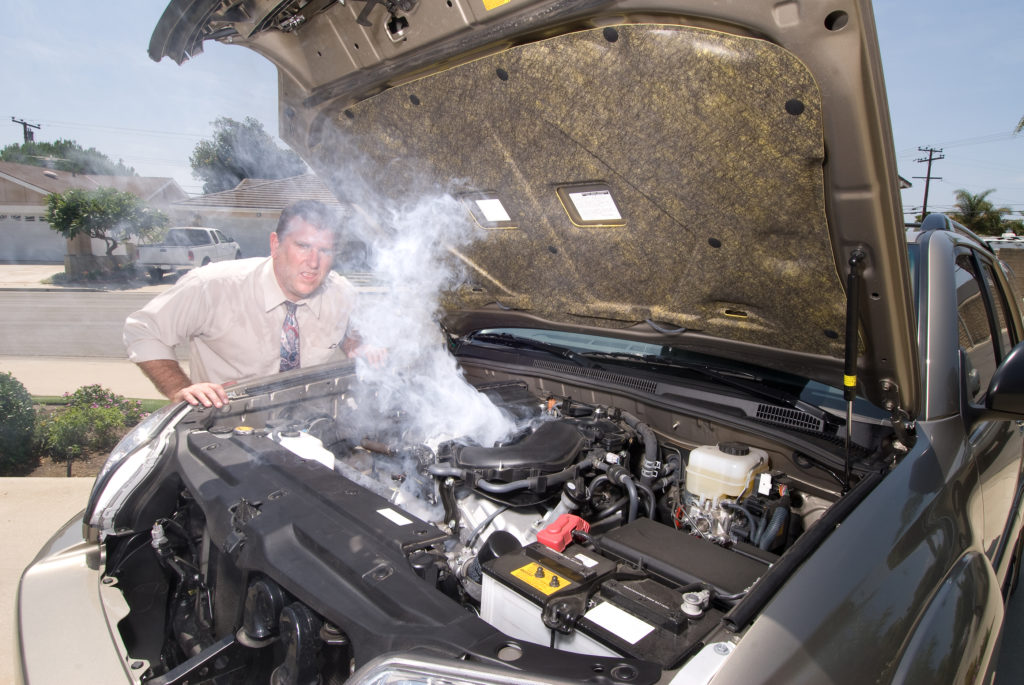If you're interested in answering the question “How to know if a car is overheating,” consider checking the following twelve symptoms:
- High-temperature gauge reading
- Dashboard warning lights
- Steam from under the hood
- Weird odors
- Reduction in vehicle performance
- Visible exhaust smoke
- Boiling sounds
- Vibration and shaking
- Fluid leaks
- Reduction in coolant level
- Strange whining noises
- Complete car shut-off
Your vehicle's engine is designed to withstand a certain temperature range. The engine might not provide work-hard energy when the temperature is very low. However, when the engine gets very high, things become very dangerous, and the engine might get to a point where it Destroys itself.
That's why every car owner must watch for any symptoms indicating car overheating. The earlier you detect these symptoms, the easier it is to fix your engine problems without installing major components.
While there is a long list of potential symptoms indicating car overheating, this article provides you with the 12 most common ones you might encounter. You must monitor for more of them to identify the root culprit of the issue.
How do we know if a car is overheating?
When your car overheats, you'll experience certain symptoms that could indicate that you need to pay immediate attention to your car. When you address these problems early, there's a very high chance that you can fix the vehicle without needing to install a new engine or other major components.
The following list highlights the 12 most important symptoms when asking yourself, “How do you know if a car is overheating?”
1- High-temperature gauge reading
The temperature gauge is the first thing you want to check when you're worried about car overheating issues. A specific gauge on the dashboard typically communicates information about the current engine temperature.
This gate should not show a continuous increase in temperature in your vehicle. Otherwise, it could mean the engine is continuously overheating, which is not a good sign. In that case, that is strong evidence that your engine needs immediate attention to avoid complications related to overheating.
2- Dashboard warning lights
In addition to the temperature gauge reading, the dashboard might have additional warning lights. Typically, these warning lights are responsible for bringing your attention to internal problems you must address. Otherwise, the more you ignore them, the harder it gets for you to address the issues.
Sometimes, these warning lights could be just the check engine light illuminating. Or it could be something else. That's why you must never ignore these warning lights and address the root culprit immediately.
Unfortunately, it can be a little bit challenging to tell whether the check engine light is related to the engine overheating. However, if you have an OBD scanner, you should be able to translate the code from the engine and help you potentially understand what it means and whether it's related to overheating or not.

3- Steam from under the hood
Some severe symptoms are related to engine overheating; hopefully, you won't get to this point. For example, if you are driving your car and suddenly you see some smoke or stream clouds coming up from underneath the hood, that's not a good sign, and you should immediately try to pull over to a safe area and stop your vehicle.
Once the engine reaches this point, many things go wrong internally; without immediate attention, your car can go into significant issues, including self-destruction. If the engine gets self-destructed, it will need a complete replacement with a new engine, rebuilding the existing engine, or a used engine.
4- Weird odors
In addition to the previously mentioned symptoms, you will notice some strange smells when you're concerned that your car is overheating. These smells will typically be things like Maple syrup or smells of burning rubber because of the internal hot components.
While the Maple syrup sounds like a good smell, it's a strong indication that there is a coolant leak. Coolant leak is never a good thing because the engine's main liquid responsible for cooling it down is escaping from the vehicle, which means the engine will continue to overheat.

5- Reduction in vehicle performance
When the engine is overheating, it cannot generate the required energy. It will be under stress, and without a healthy engine, your vehicle won't have the right performance, and that's why you might notice that the car is not accelerating or reacting as it should.
Remember that reduced vehicle performance is not always linked to engine overheating because it could be related to a long list of potential culprits. That's why you shouldn't rely only on this symptom and should be looking for a combination of other symptoms to confirm whether your car is overheating.
6- Visible exhaust smoke
In certain situations where the engine overheating is related to an internal major problem, you'll see some visible exhaust smoke coming out of the tailpipe. If you're driving a more modern car, you shouldn't see visible exhaust smoke because it's typically clear. Still, if that's not the case, it could indicate internal problems, including engine overheating issues.
Note that depending on the color of the exhaust smoke, you can also get some additional information. For example, the smoke might be blue, black, or any other color that means different things. Therefore, you must familiarize yourself with each color to help pinpoint the root culprit.

7- Boiling sounds
Some car owners indicated that they noticed some boiling sounds as they ignored the engine overheating problem. This is very severe and means that the engine is getting to a point where it might require immediate attention and, without that, can get self-destructed.
These boiling noises could be because the engine is getting very hot and to the point that it's beyond the boiling point. This is beyond the operation point for your vehicle and the cooling system to cool down the engine.
8- Vibration and shaking
Another thing you might notice when your engine overheats is the car vibrating and shaking. This might be related to some issues in the vehicle related to overheating. Still, it could also mean different problems related to other components, including the steering wheel and issues with the wheels and the tires.
That's why relying on this symptom can be a little bit misleading, and you have to consider checking other symptoms to confirm whether your car is overheating or it's just an issue with the other components.

9- Fluid leaks
Your engine relies on the cooling system to drop its temperature and keep it within the optimum range. When there is some coolant leak from your vehicle, the engine will not cool down, and it will continue to get hot, where you will experience the other symptoms of car overheating.
Like the coolant, your engine relies on the lubrication system, including the oil, to get its internal components lubricated and avoid internal friction that could result in additional heat. That's why when the oil is leaking, the engine might fail immediately.
10- Reduction in coolant level
When there is a coolant leak internally or externally, you'll see immediately that the coolant level is dropping, and when it gets below the minimum point, things should get concerning. In some instances, you may not have this chance to move your car from your location to the nearest repair shop; It would be best if you relied on a towing service instead.

11- Strange whining noises
In addition to the previously mentioned issues, you might start noticing that your engine is making some whining noises, indicating that it cannot operate and is over-stressed. In that case, you should not ignore this problem and take it seriously by understanding what's happening with the heat and what's causing it.
12- Complete car shut off
Finally, if you ignore the overheating problem, don't be surprised to deal with situations where your car shuts off completely and the engine fails. That's why it's never a good idea to underestimate the issue related to car overheating.

How do you know if the car is overheating? Final Thoughts
Engine overheating is one of the most common critical problems you might encounter as a car owner. You must address these problems as soon as possible before it gets very complicated.
This article highlighted the most important symptoms indicating engine overheating to help answer the question, “How do you know if a car is overheating?” These symptoms include elevated temperature gauges, warning lights on the dashboard, steam coming out of the hood, and others.
If you experience any of these symptoms, you must pull over and stop your car in a safe area to address the problem as soon as possible. The more you delay addressing the issue, the more critical the problems are and the higher the chances you need to invest significant money in fixing this vehicle.
If at any point you realize that your vehicle is beyond repair and you would like to sell it instead, call Cash Cars Buyer at 773-791-4363.
If you're interested in similar posts, we highly encourage you to visit our blog by clicking here!



